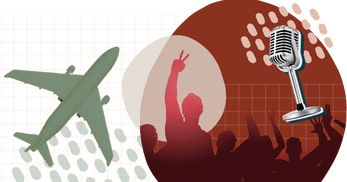ESFP

What Is an ESFP Personality Type?
ESFP is an acronym used to describe one of the sixteen personality types created by Katharine Briggs and Isabel Myers. It stands for Extraverted, Sensing, Feeling, Perceiving. ESFP indicates a person who is energized by time spent with others (Extraverted), who focuses on facts and details rather than ideas and concepts (Sensing), who makes decisions based on feelings and values (Feeling) and who prefers to be spontaneous and flexible rather than planned and organized (Perceiving). ESFPs are sometimes referred to as Performer personalities because of their playful, energetic nature.
ESFP in a Nutshell
ESFPs are vivacious entertainers who charm and engage those around them. They are spontaneous, energetic, and fun-loving, and take pleasure in the things around them: food, clothes, nature, animals, and especially people.
ESFPs are typically warm and talkative and have a contagious enthusiasm for life. They like to be in the middle of the action and the center of attention. They have a playful, open sense of humor, and like to draw out other people and help them have a good time.
ESFP Values and Motivations
ESFPs live in the moment, enjoying what life has to offer. They are especially tuned into their senses and take pleasure in the sights, sounds, smells, and textures around them. ESFPs like to keep busy, filling their lives with hobbies, sports, activities, and friends. Because they'd rather live spontaneously than plan ahead, they can become overextended when there are too many exciting things to do. An ESFP hates nothing more than missing out on the fun.
Although they are characteristically fun-loving, ESFPs are also typically practical and down-to-earth. They are grounded in reality and are usually keenly aware of the facts and details in their environment, especially as they pertain to people. They are observant of others and their needs, and responsive in offering assistance. ESFPs enjoy helping other people, especially in practical, tangible ways.
How Others See the ESFP
How Rare Is the ESFP Personality Type?
- 6% of the general population
- 6.7% of women
- 5.1% of men
Famous ESFPs
Famous ESFPs include:
- Marilyn Monroe
- Dolly Parton
- Elizabeth Taylor
- Judy Garland
- Will Smith
- Magic Johnson
- Elvis Presley
- Ronald Reagan
- Serena Williams
- Paul McCartney
- Bob Hope
- Goldie Hawn
ESFP Quotes
Facts About ESFPs
Interesting facts about the ESFP:
- On personality trait measures, score as Changeable, Energetic, Forceful, Initiating, and Resourceful
- More likely to use emotional coping techniques over spiritual or physical resources
- Tend to look to authority in education rather than expressing intellectual curiosity; prefer hands-on learning
- Among most likely to stay in college
- More likely than other types to watch television for more than 3 hours a day
- Second highest of all types in marital satisfaction
- Among types with lowest income
- At work, tend to be satisfied with co-workers but dissatisfied with job security, stress, salary, and accomplishment
- Personal values include Home/Family, Health, Friendships, Financial Security, and Spirituality
- Overrepresented in health care, teaching, coaching, and child care occupations













